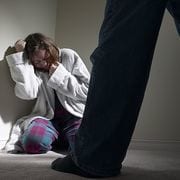
Signs that you’re involved in an abusive relationship
Although it doesn’t often get brought up in conversation, chances are good that you, or someone you know, has been involved in an abusive relationship. According to Love is Respect, one in three teens report that they know someone who had been physically hurt by their boyfriend or girlfriend at one time or another. These numbers are staggering and they rise when one considers other forms of abusive relationships that are not always as obvious.
Monitoring and controlling one’s activity – whether it’s online, offline or on the phone – is considered abusive, as is starting rumors, harassing or emotionally injuring another. Abuse doesn’t have to take a physical form in order for it to be destructive; psychological abuse and emotional abuse are just as dangerous and painful in an abusive relationship.
People who are in abusive relationships often don’t even realize it, and this makes it difficult for the relationship to heal or, if need be, end. Do you think that you or someone you know is currently in an abusive relationship? Consider the following questions from Love is Respect.
Does your boyfriend/girlfriend:
- Look at you or act in ways that scare you?
- Act jealous or possessive?
- Put you down or criticize you?
- Try to control where you go, what you wear or what you do?
- Text or IM you excessively?
- Blame you for “making” them treat you badly?
- Threaten to kill or hurt you or themselves if you leave them?
- Try to stop you from seeing or talking to friends and family?
- Try to force or guilt you into sexual activity?
If you answered ‘yes’ to any of these questions (either about yourself or about someone you know), chances are, that relationship is an abusive relationship.
What should you do if you believe you, or someone you know, is in an abusive relationship? The best thing you can do is talk to someone you trust. It can be a counselor, a parent, an R.A. or even a friend. If you’re too scared to confide in someone you know, you can always talk to a peer advocate on the phone through Love is Respect’s hotline (1-866-331-9474) or you can chat online on their website. The peer advocates are all between the ages of 16 and 24 and can offer you support and also tell you wear you can get help.
If you are in an abusive relationship, be sure to speak up and have your voice hear so that you can get the help and support that you need. No relationship should be an abusive relationship.














